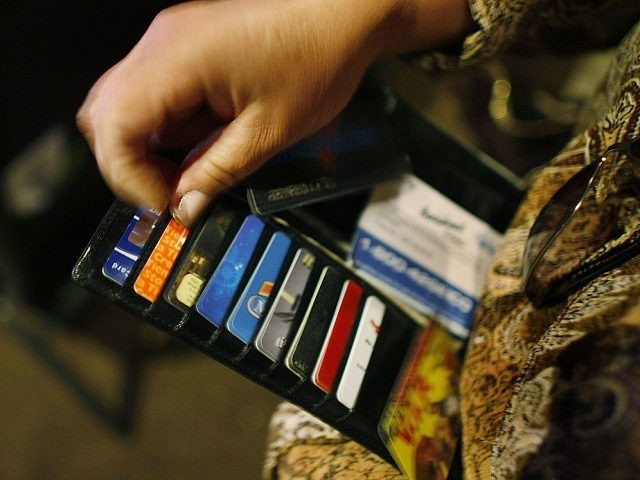Americans owe a whopping $1 trillion in credit card debt thanks to rising interest rates, according to data from the Federal Reserve.
Federal Reserve data released April 7 shows that U.S. consumers owe $1.0004 trillion on credit cards, up 6.2 percent from a year ago and 0.3 percent from January, according to Dow Jones newswires.
The credit card debt level is at its highest since January 2009, according to the data.
The New York Post reports that U.S. consumers who do not pay off their credit card bill each month carry an average monthly balance of about $9,600.
Furthermore, credit card borrowers are now paying $1,254 a year in interest on average.
That is $69 more a year in interest than last year, when a credit card holder making minimum payments forked over $1,185 in annual interest, according to Ben Woolsey of CreditCards.com.
The Federal Reserve expects to raise interest rates two more times in 2017, which would increase the average interest credit card borrowers would pay per year to $1,301, a $116 a year increase, in interest.
However, the gains in income have not been significant enough to keep pace with rising interest rates.
According to data from the Bureau of Labor Statistics, an average nurse makes $2,412 a month- an increase of about 21 percent in the last decade.
But the price of goods and services have increased at a much faster pace than wages for the average working person.
Medical costs increased by 57 percent, food prices soared by 36 percent, and housing costs spiked by 32 percent since 2003, according to online personal finance Web site NerdWallet.
“It’s not surprising that debt continues to increase when it’s becoming harder to make ends meet,” NerdWallet’s 2016 Annual Household Debt Survey concluded.
Personal finance experts say borrowers who carry large balances should look for zero-percent-interest balance transfer offers with fees of 3 percent or less, and terms of 18 months or more.

COMMENTS
Please let us know if you're having issues with commenting.